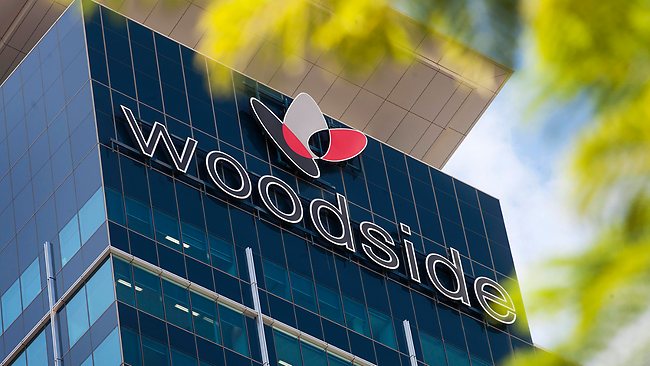Woodside in Talks with Santos to Form $52 Billion Australian Gas Giant
(Reuters) — Australia's Woodside Energy and Santos said on Thursday they were in preliminary talks to create an A$80 billion ($52 billion) global oil and gas giant, as consolidation among international energy firms intensifies.
Combining two of Australia's largest oil and gas producers would be the largest corporate deal in the country for several years, during which buyout activity has been subdued by rising interest rates and financial market volatility.
A deal, if it goes ahead, would create the biggest LNG producer in Australia, the world's No. 2 exporter of the super-chilled fuel that is expected to see decades of growth to meet Asia's energy transition needs.
Perth-based Woodside, the larger of the two companies, said the talks with Santos were confidential and incomplete and that there was no certainty an agreement would materialize. Its market capitalization stands at A$56.91 billion, while Santos is valued at A$22.1 billion.
"Woodside continuously assesses a range of opportunities to create and deliver value for shareholders," it said in a statement to the Australian stock exchange.
Both companies face rising pressures of decarbonization as well as challenges in their current projects. Woodside's share price has dropped 15.4% this year so far, while Santos' stock is down 4.3%.
Combined oil and gas production for the two stood at just over 260 million barrels of oil equivalent while the total proven plus probable reserves is at 5.39 million BOE, based on 2022 data from the companies.
A deal between them would create an LNG powerhouse with annual sales of 60 million metric tons, said Bernstein analyst Neil Beveridge.
"It's an Australian powerhouse that would have better leverage with buyers and the ability to optimize that LNG portfolio given the number of terminals," he added.
However, such a combination would come under close scrutiny from Australia's competition watchdog, which has been toughening its stance towards allowing takeovers in concentrated sectors.
"The ACCC is aware of public reports of the potential transaction," a spokesperson for the Australian Competition and Consumer Commission said. "If the potential transaction progresses, the ACCC would consider if a public merger review into the impact on competition is required."
"It (a merger) makes sense given how the share prices have languished and all the capex to come," said Jun Bei Liu, Tribeca Alpha Fund portfolio manager who owns shares in both companies.
"In today's world oil is almost done so you need to get scale and generate as much profit as possible to invest for the energy transition."
Pressure
News of the talks follows a string of recent deals in the global oil and gas sector which saw majors Exxon Mobil Corp and Chevron paying more than $50 billion each to acquire two U.S. producers.
There has also been pressure to simplify the Australian oil and gas sector, which has seen two recent big-cap mergers with Woodside combining with BHP Group's oil and gas business and Santos acquiring Oil Search.
"Woodside has already been looking outward after the BHP acquisition and both companies have had good runs with the high oil and gas price environment of the past two years," said Kaushal Ramesh, vice president of LNG Research at Rystad Energy.
Discussions with Santos come less than 18 months after Woodside completed the BHP deal and as it grapples to get final approvals for its A$16.5 billion Scarborough venture in Western Australia, its biggest growth project.
L1 Capital, a local hedge fund and Santos shareholder, called in September for it to consider separating out its LNG assets to help boost its share price, which had lagged global and local peers for three years.
Both Woodside and Santos had recently flagged challenging near-term production along with soaring capital expenditure and regulatory hurdles to ongoing projects.
Santos wants to restart work on the Barossa gas project once it finishes a fresh round of talks with conventional landowners. ($1 = 1.5244 Australian dollars)
Related News
Related News

- Keystone Oil Pipeline Resumes Operations After Temporary Shutdown
- Freeport LNG Plant Runs Near Zero Consumption for Fifth Day
- Biden Administration Buys Oil for Emergency Reserve Above Target Price
- Mexico Seizes Air Liquide's Hydrogen Plant at Pemex Refinery
- Enbridge to Invest $500 Million in Pipeline Assets, Including Expansion of 850-Mile Gray Oak Pipeline





Comments